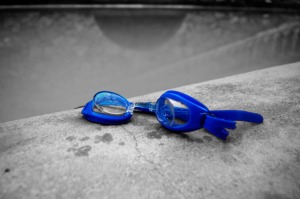I originally posted this to Facebook in February of 2018…and nothing has changed.
Another school shooting…another mass shooting. I find myself completely numb to it anymore. Not sad or “tense” (as some of you will think) or even advocating for change. Numb. Numb because if I let the heart ripping grief back in, it will overwhelm me. The darkest part of me shrugs and thinks, “Maybe this is America’s choice for population control.”
The arguments are tiresome and somewhat sickening. Yes, the gun is just a tool. No, this isn’t about lack of disciplining by parents or kids not tattling on their friends in time. No, taking away all the guns isn’t the solution. Yes, it is somewhat about our broken mental health system. No, everyone being armed isn’t the answer. Yes, “thoughts and prayers” has become an empty and useless sentiment. No, wanting to fix something that feels so broken is not “politicizing” grief. Yes, there will always be bad guys who will find a way to do harm.
Our problem, deep down, is our culture, and we need to own it. Whether we ultimately fix it or just accept this as status quo, we need to own the fact that we are, at heart, a culture that embraces the idea of violence as a solution to our problems. Don’t get me wrong: I love my country and the ideals we were built on, but the reality has unfolded in a bloody way. Think about it: we brag about how our Founding Fathers fought and killed for their beliefs; we euphemistically call our period of genocide and invasion “Western Expansion” and celebrate those pioneers who took territory at the point of a gun; we continue to wave the flag of secessionists who brought about the bloodiest and deadliest conflict in American history; we romanticize the “Wild West” as a time when right and wrong were decided by street duels and death; we chose a National Anthem that is a celebratory ode to war; we cheer movies where the hero ends the story by blowing away the bad guy. We must face the fact that, flag be damned, we have raised the gun as our true symbol of freedom and righteousness.
Being me, I’ve tried to figure out WHY. Why is the 2nd amendment the only one we fight so hard to preserve? Why do we argue so vehemently and with such vitriol at any whisper of gun control? It is a little too simple to say it’s money and the NRA. The NRA would have no crop without a fertile field to cultivate. So why is it that Americans are so ready to go all in for this one amendment while we shrug and turn away at the violations of free press and free speech and equal protection?
I think it’s fear and uncertainty, combined with the tangibility of “arms”. People are scared of how fragile their life circumstances are. We feel vulnerable to a government that can take away our money through taxes and our property through the power of eminent domain, and insignificant and powerless to change that at the voting booth in the face of billions in lobbyist money. The abstracts of free speech and equal protection are cold comfort when you feel like you are one illness away from losing your home. But a gun. A GUN is something we can buy, something we can touch, something we can own, something we can hide, something that scares other people, and something that gives us a sense of power. We believe we can defend our safety, our livelihood, and our property EVEN AGAINST OUR GOVERNMENT with the power of a gun, backed by the Constitutional protection of the 2nd Amendment. It is our line in the sand against fear and feeling powerless.
The sad irony is that despite the ideals of our Enlightenment forefathers, despite the beauty of the ideas they penned into the Declaration of Independence and Constitution, they chose violent rebellion as the mother to birth our country. That willingness to accept that the ends justify the means, no matter the consequences, and that blood must be the price of freedom, is embedded into our national DNA. We need to face it and own it, and then decide: do we fix things or accept the status quo?


